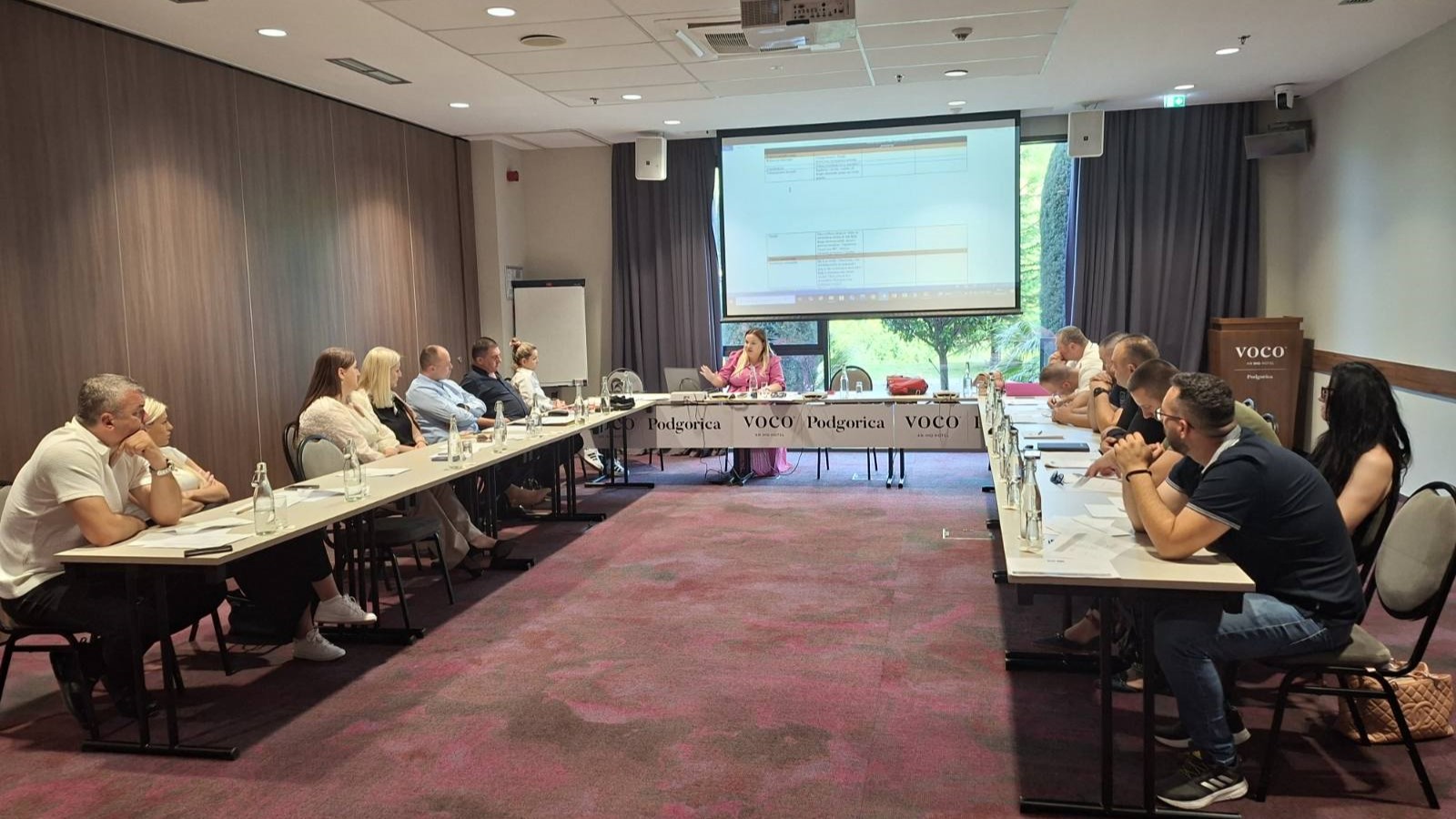Representatives from correctional staff from the penitentiary -system of Montenegro enhanced their expertise and knowledge in managing, rehabilitating and preparing for release of violent extremist and radicalised prisoners, as well as other prisoners at risk from radicalisation.
The 2-days cascade training organised in Podgorica gathered security and treatment staff from detention facilities in Bijelo Polje and SPUŽ. They were introduced with key tools and the rehabilitation and pre-release programme for radicalised prisoners which is being conducted by the Directorate for Execution of Criminal Sanctions (DECS) of the Ministry of Justice of the Republic of Montenegro.
The session was run by well trained professionals, who were able to share their knowledge and lessons learned from the pilot phase, during which these tools and programme were successfully implemented within the Montenegrin prison context. The cascade session also demonstrated DECS commitment to the process and their willingness to ensuring sustainable utilisation of the tools and continuous professional development among peers.
The event is organised in the framework of the regional action “Enhancing co-operation in the Western Balkans in managing violent extremism in prisons and preventing further radicalisation after release”, through the joint support of the EU and Council of Europe, provided under the auspices of the third phase of the Horizontal Facility programme.


